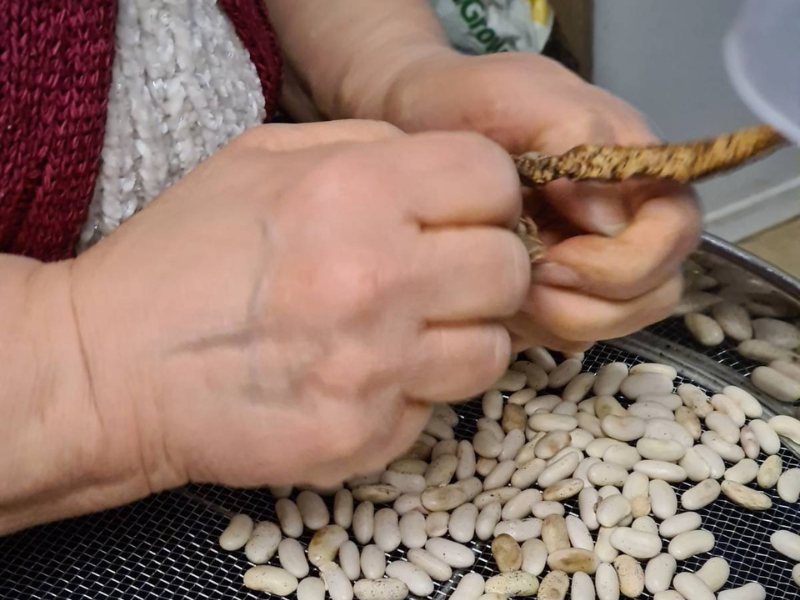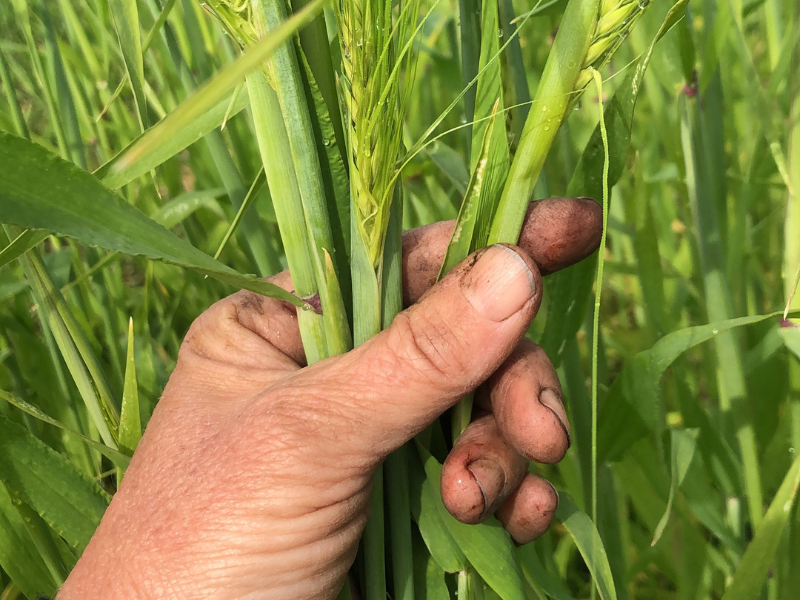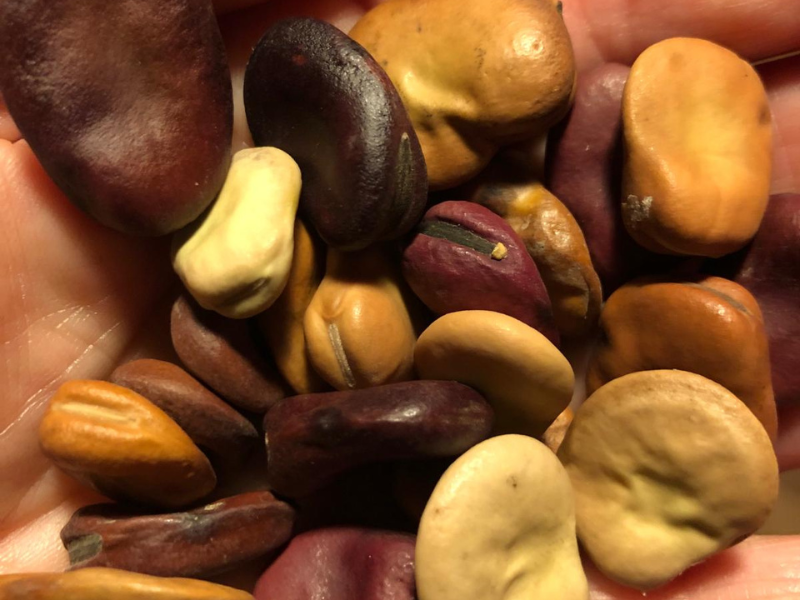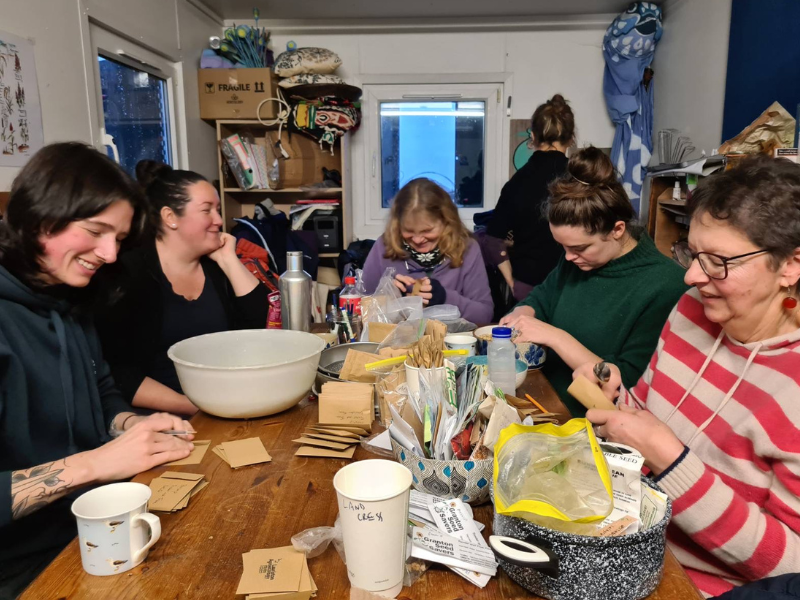Farm News | March 8, 2024
Seed Stories from the Farm
We collected some seed stories from the farm for 2024 Seed Week…

Beautiful Bere Barley
![]()
We grew three varieties of Bere Barley as part of a trial with the James Hutton Institute, and we are hoping to scale these up this year. Bere is an ancient, six-rowed native barley which has been grown and milled on Orkney for over 4000 years and is thought to be one of the oldest landraces. It’s also known as ’90-day Barley’ because it was bred to adapt to Orkney’s short growing season.

Bere Barley at Lauriston Farm
Once upon a time, it was the main grain for bannocks and bread on the island, but with industrial agriculture developing more productive, easily processed grains and cheap flour, the use and the growing of Bere steadily declined.
There’s a revived interest in Bere, both for its cultural importance and its links to our past, but also for its environmental and health benefits. Bred to withstand the stresses of the climate and conditions in the Orkneys and Hebrides, it has unique abilities to cope with issues related to alkaline soils, such as micronutrient metal deficiencies.
Lisa, our Community Growing Development Coordinator, said:
“It was an amazing crop to watch grow, partly as it grew so fast, but also the way it sprouted and so rapidly spread out leaves to cover the ground to outcompete weeds before ascending up to the sky to produce seed. You could see just how resilient it was in the way it grew.”
Crowd Breeding with Gaia’s Seed Sovereignty Programme
![]()
We are excited to be a part of the Gaia Foundation’s Seed Sovereignty ‘crowd breeding’ project. Seed growers across the UK are working to develop vegetable landraces specifically adapted to our unique soils.
The project facilitates collaborative plant breeding of diverse populations. By using crowd breeding, we hope to inspire collaboration and explore how we can curate locally-adapted, resilient and diverse crops together.

Broad bean ‘flock’
The project is rooted in some of the work of Joseph Lofthouse, and we were so lucky to have him join one of our online meetings (his book, Landrace Gardening, is “wonderful and slightly mind-blowing” – Lisa’s review!). He defines a ‘landrace’ as a genetically-diverse, promiscuously pollinating and locally adapted crop.
We are starting by growing ‘flocks’ of seeds. As a group, we jointly picked three crops: broad bean, kale and summer squash. We then voted on which varieties we would like to have in each flock. We will get packets of the flock mix. This year we will sow these, record the results, share the experience, and jointly decide on which traits we are looking to develop in our flock. Our seeds will then be pooled and redistributed among all the growers and grown on again in a similar way. We will develop the crop by selecting for resilience, and things like flavour, colour, cooking qualities, storage potential etc.
It’s an exciting and radical approach to seed-saving that we are very excited to be a part of.
Stocking the Seed Kist
![]()
On a cold December afternoon in 2023, we gathered to process the seeds that we had grown at the farm and to pack them up into envelopes to go into our beautiful Seed Kist. It was a lovely afternoon with lots of chat and laughter and seedy musings.

Stocking the Seed Kist
For over a decade, the Seed Kist has been at the heart of efforts to restore seed sovereignty to communities in Scotland. Rob (one of our Farm Co-ordinators) first got his hands on the Seed Kist while working on the Fife Diet Seed Truck. The kist travelled all over Scotland in the truck holding a stash of seeds to give away, plus the seeds gathered along the route in swaps. Then the Common Good Food project (formed by Fergus Walker, Mags Hall and Rob) picked up the baton, and the kist, and gave away thousands more free seeds across Scotland. Now it’s here at the farm as a resource for the community, packed with seeds saved from the farm and from other North Edinburgh growing projects, and some spare commercial seed packets people have donated.
The next seed share is on Saturday 16th March 10am-12noon (drop-in).
